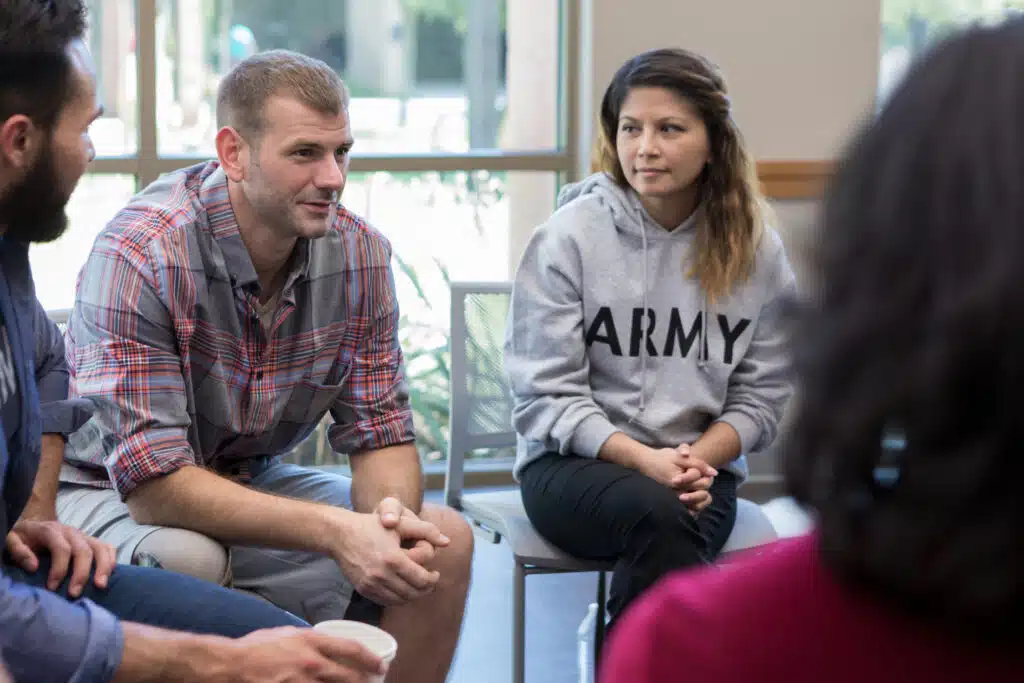Our specialists, many of us veterans ourselves, can relate to your concerns and are dedicated to supporting you on your journey to recovery.
We begin by conducting thorough, trauma-informed assessments to understand the unique trauma histories and treatment needs of each person.
By gathering information about past experiences, current challenges, and personal goals, we can develop a personalized treatment plan that addresses the full spectrum of a person’s needs.
At New Choices Treatment Center, we recognize that military personnel face unique challenges when it comes to trauma recovery and reintegration into civilian life. That’s why we offer a range of specialized groups, workshops, and activities designed specifically to address these needs.
Our combat stress and PTSD groups provide a safe, supportive space for veterans to process their experiences and develop coping strategies.
Led by experienced clinicians who understand the complexities of military trauma, these groups focus on topics such as:
MST is a devastating reality for far too many service members. Our MST support groups offer a confidential, validating environment where survivors can connect with others who understand their experiences.
Facilitated by trained therapists, these groups:
Through this supportive community, survivors can begin to reclaim their lives and move forward in their recovery.
Adjusting to civilian life after military service can be a daunting challenge. Our workshops on transitioning back to civilian life provide practical guidance and emotional support for this critical period.
By equipping veterans with the tools and knowledge they need to succeed, we aim to smooth the transition process and promote long-term wellness.
We believe that healing happens not just in therapy sessions, but also through the power of connection and shared experience. That’s why we offer a variety of recreational activities designed to promote camaraderie and peer support among our veteran clients.
From group fitness classes and team sports to outdoor adventures and creative arts projects, these activities provide opportunities for veterans to:
At New Choices Treatment Center, we are committed to providing programming that honors the unique experiences and needs of military personnel.
By combining clinical expertise with a deep understanding of military culture, we aim to create a truly veteran-centric approach to trauma recovery and reintegration.
Our goal is to help each veteran who comes through our doors find the strength, resilience, and sense of belonging they need to thrive in this next chapter of their lives.
In addition to our on-site programming, we are committed to connecting military personnel with community resources, support groups, and services that can enhance their recovery and reintegration efforts.
By providing a comprehensive network of support, we can help military personnel build the foundation for long-term recovery and success.

